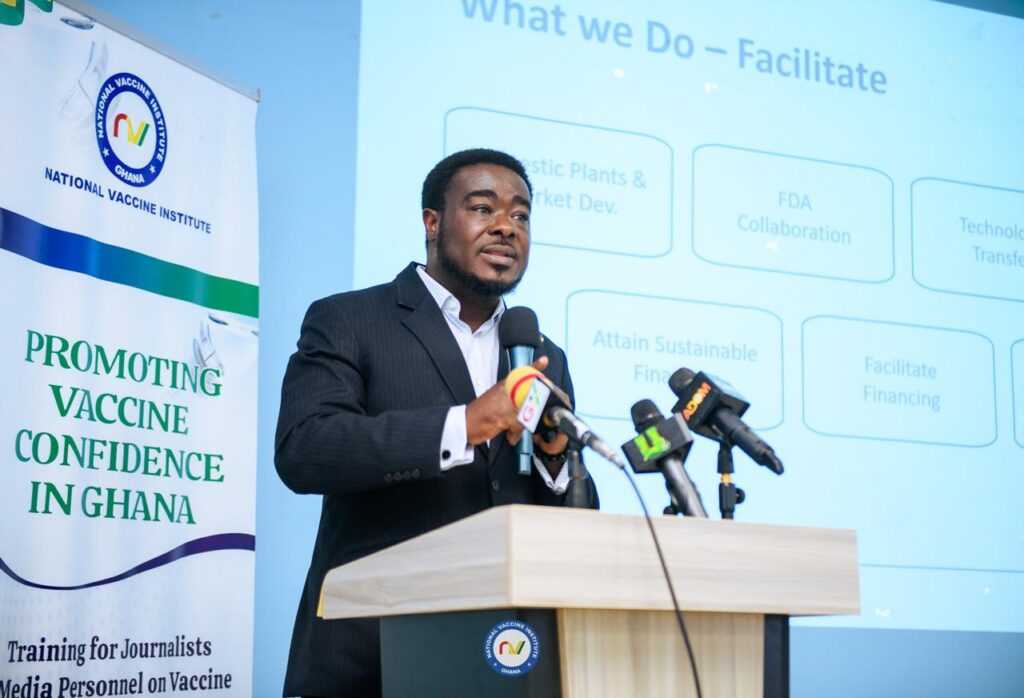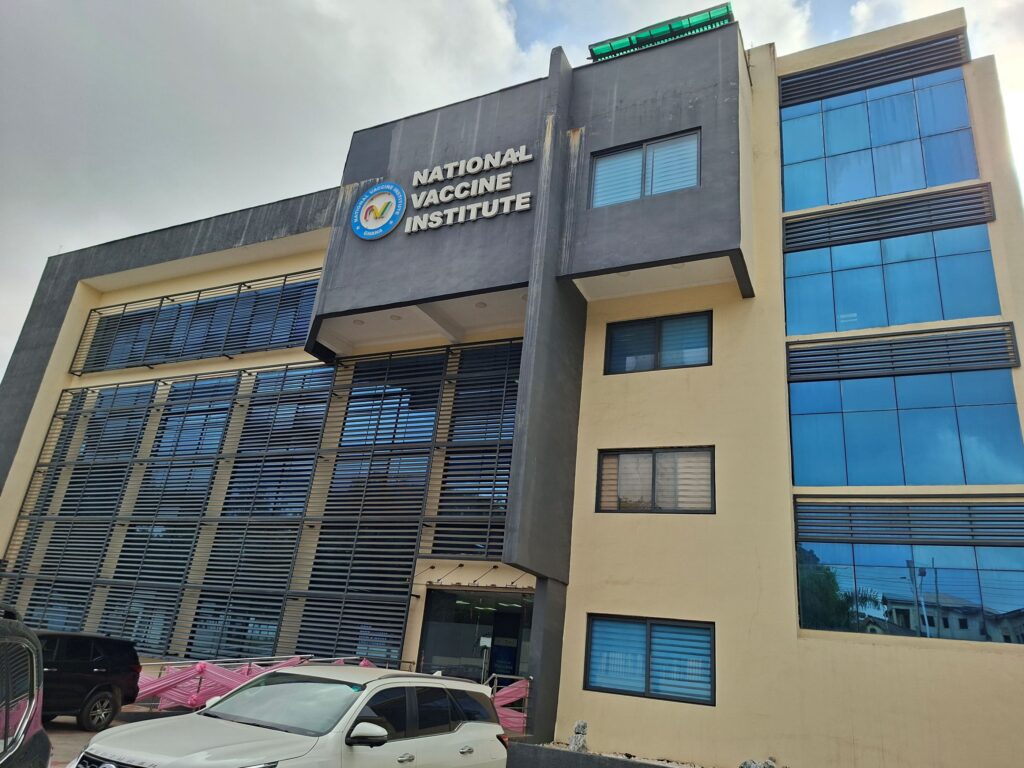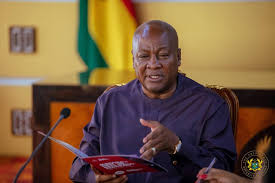By Jones Anlimah
Ghana is taking deliberate, confident steps toward vaccine self-sufficiency, a move driven not only by science and manufacturing but also by public trust. This message was strongly underscored in Accra when the CEO of the National Vaccine Institute (NVI), Dr. Sodzi Sodzi-Tettey, addressed a national training workshop on vaccine communication and advocacy.
According to him, Ghana’s decision to manufacture its own vaccines must be viewed through the lens of both global politics and public confidence. He recalled how, during a high-level discussions in Brussels, it was suggested that Africa should reconsider investing in vaccine production because “there is enough manufacturing capacity all over the world.” Yet, as he pointed out, the lived reality on the continent proves otherwise.
“At the height of COVID, when African countries needed vaccines, it was a struggle. Access was limited. That is why our view of capacity must be different,” he explained.
Today, less than 1% of all vaccines used in Africa are actually produced in Africa. For Dr. Sodzi-Tettey, this requires a paradigm shift – which is why the African Union has set a bold target that 60% of the continent’s vaccines should be manufactured locally by 2040.
A Scientific Ecosystem in Motion
Ghana’s vaccine ambitions depend on a strong scientific and regulatory ecosystem. Dr. Sodzi-Tettey highlighted broad collaborations between NVI and key institutions, including Noguchi Memorial Institute for Medical Research, KCCR, UHAS, KNUST, Navrongo Research Centre, and others. These partnerships, he said, are essential for rapid research, development, and response when new outbreaks emerge.
“When the next pandemic comes – and it will – Ghana must not stand helpless. Our research institutions must be strong enough to develop solutions quickly,” he emphasized.
On the manufacturing front, Ghana’s model is a public-private partnership involving Atlantic Life Sciences and DEK Vaccines Ltd., companies positioned to produce several vaccines locally. One plant alone has the capacity to manufacture up to 600 million doses annually, a volume far beyond Ghana’s domestic needs.
But that level of capacity introduces a new challenge: market demand.
“If we build factories and there is no guaranteed market, the business will collapse. Vaccine production is capital-intensive, and it cannot survive on uncertainty,” he warned.
This is why Ghana is actively pursuing regional procurement arrangements, including the Africa Pooled Procurement Mechanism, to ensure manufacturers have stable demand.

The Cost of Vaccine Independence
One of the most compelling insights from Dr. Sodzi-Tettey’s address was on Ghana’s impending graduation from Gavi support by 2030. Currently, government contributes about $25 million annually to procure 13 essential vaccines. Once Ghana fully graduates, this figure is expected to rise significantly.
“From 2030 onwards, we would have to cover not less than $50 million each year for our vaccine needs,” he noted. This shift makes local vaccine production not only desirable but necessary.
Massive financial commitments are already flowing into the sector. AfriXim Bank has earmarked $2 billion to support African vaccine manufacturing, with $113 million designated for Ghana’s manufacturers. Government has also committed $50 million in seed funding, while the European Union and GIZ are equipping research institutions with more than €2.5 million in tools, laboratory upgrades, and partnerships.
With regulatory oversight from the Food and Drugs Authority which now holds internationally recognised maturity status, Ghana has the foundation to manufacture ethically, safely, and at global standards.

Winning Hearts, Not Just Building Factories
Despite these gains, Dr. Sodzi-Tettey stressed that public trust remains the most fragile and most crucial ingredient.
“We can produce vaccines, but if Ghanaians do not trust the vaccines made in Ghana, everything we are building will be in vain,” he cautioned.
His call was direct: journalists, communicators, health advocates, and community voices must lead a new era of public education. Transparency must be the norm. Concerns must be addressed with empathy. And every Ghanaian must understand that locally manufactured vaccines go through the same rigorous research, trials, and regulatory scrutiny as those imported.
The stakes are high. Misinformation remains a powerful threat, and vaccine hesitancy can cripple public health progress. But Ghana’s new vaccine drive presents an opportunity to build national pride, strengthen health security, and reshape perceptions.
As the CEO put it: “Local vaccine production is about the future of Ghana’s health sovereignty. It is about our ability to protect our own people without waiting for the world to decide whether or not to help us.”
A Shared Responsibility
Ghana’s entry into vaccine manufacturing is not only a scientific and industrial milestone; it is a national identity project. If successful, it will redefine how Ghanaians see their capability, their scientists, and their public health institutions.
The responsibility now lies not only with government and manufacturers, but with communicators, traditional leaders, civil society, and the media.
To win public confidence, Ghana must tell the story of its vaccine journey boldly, honestly, and repeatedly – with clarity, not coercion; with evidence, not emotion; and with pride, not fear.
When the first Ghana-made vaccines enter the market in the coming years, they should not merely be accepted. They should be embraced as a symbol of a nation taking charge of its own health destiny.





